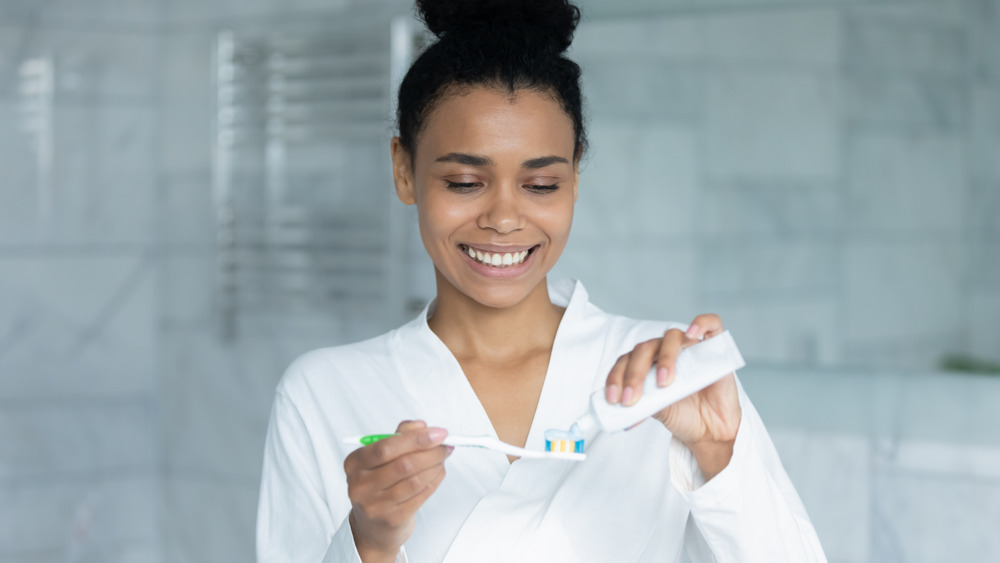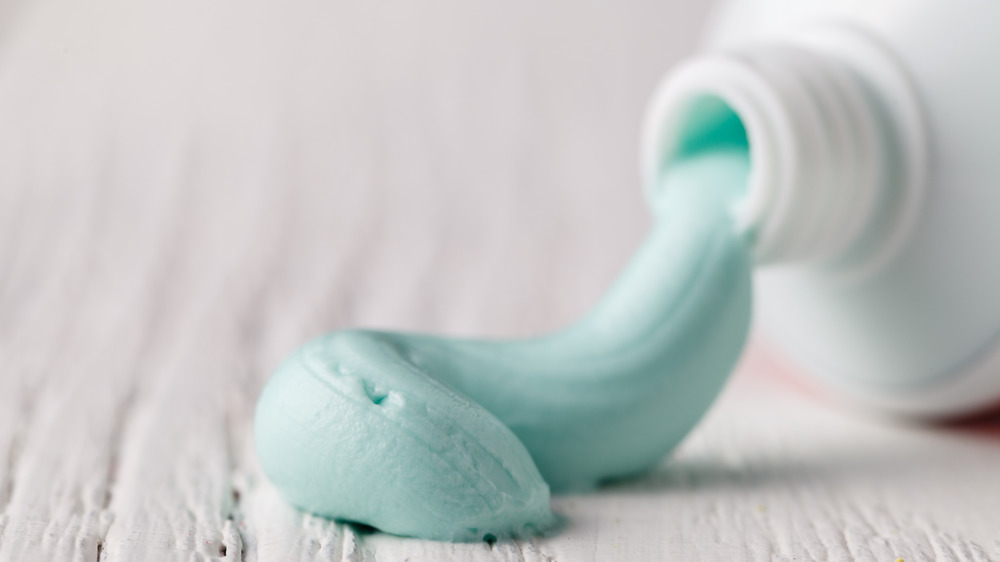What You Should Really Know About Natural Toothpaste
Fluoride has had a tough few years in the press. With various studies showing health concerns and people deciding to remove products that contain the chemical, natural toothpaste options have popped up in most drug stores. As many people are opting for organic, chemical-free self-care products and foods, natural toothpaste is certainly a byproduct of this movement.
However, many have questioned the cleaning capabilities of this type of product, and if it's really that clean in the first place. Perhaps the main difference between conventional toothpaste and natural options involves fluoride, a strengthening mineral that's been used to protect teeth for decades. According to Women's Health, fluoride is best used for cavity protection, and without this ingredient, it may leave your teeth vulnerable. The controversy around it, however, includes rumors of too much fluoride causing headaches, eczema, and even diseases like bone cancer.
But, Dr. Rhona Eskander also told the outlet about the potential downsides to other additives found in many conventional toothpaste options and that they may be best for some people to avoid. "However, there can be harmful substances in non-natural toothpastes such as SLS, which is known to be a skin irritant. It can strip the skin of its natural oils which can cause dry skin, irritation and reactions. Moreover, with issues surrounding palm oil, when used in toothpaste we are not helping the crisis."
The main sticking point is fluoride
With so many trends in the toothpaste aisle, it can be difficult to find what's best for you. Indeed, companies are picking up on various wellness fads and placing them in the tube. New York-based dentist Caroline Barsoum in speaking with Allure expounds on the number of choices today, saying that natural toothpastes can "include everything from clay and charcoal toothpastes to salt and baking soda formulas, as an alternative to traditional fluoride toothpastes." But in reality, fluoride also comes from the Earth. "It's found throughout the earth's crust, in rainwater, in plants, and it's the only ingredient that is proven to reduce cavities."
While natural toothpastes often steer clear of parabens, sulfates, dyes, and other chemicals, removing fluoride can be the controversial part. If you'd like to keep the fluoride but ditch the rest of the additives, you can look for a natural option that still contains the chemical. Even with this in mind, it's important to note that, "No 'natural' or 'organic' toothpaste has been clinically demonstrated to be better at decay prevention, gum disease elimination, or whitening performance than traditional toothpaste," Mark S. Wolff, a dentist in New York City tells Allure.
People with allergies or those who are looking to live a life with fewer chemicals can certainly check out the latest toothpaste trends and find alternatives. If you feel comfortable with fluoride though, keep it. If not, look for another option.

